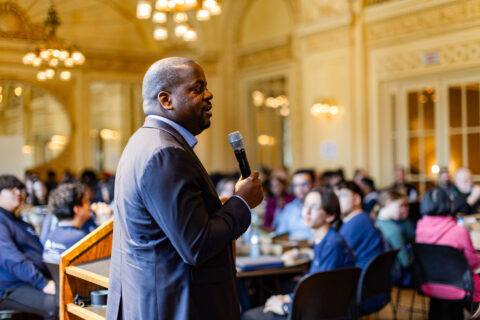By Stanford Thompson, Executive Director, Equity Arc
At Equity Arc, we believe the future of classical music must be shaped by access, opportunity, and excellence—not circumstance. Our mission is rooted in the understanding that talent is abundant across all communities, but opportunity is not. If we are to truly build a field that reflects the full diversity of our society, we must invest in systems that remove barriers and make success possible for every young musician with the passion and potential to thrive.
That’s why we are doubling down on our support for “Pathways Programs”—structured pre-college training programs that identify, nurture, and prepare BIPOC youth for careers as professional classical musicians. These programs aren’t just about instruction; they are about transformation. And in the face of growing political pushback against diversity, equity, and inclusion (DEI), we must be clear: Equity Arc stands firm in our belief that diversity without inclusion, and inclusion without equity, will not move our field forward.

Too often, “merit” has been used as a shield to maintain the status quo. But without a level playing field—where students have equal access to resources, instruction, and mentorship—meritocracy fails. Programs that uplift underrepresented talent must go beyond good intentions to meet real needs. Based on decades of experience and the collective work of our National Collective for Musical Pathways, we’ve identified four best practices that define successful Pathways Programs:
- Commitment: Students must commit to the serious pursuit of classical music, aiming toward conservatory or collegiate study. Families play a key role—providing support, participating in events, and ensuring students engage fully with the classical music ecosystem.
- Instruction: Rigorous, consistent training is essential. Students receive weekly private lessons, practice intensively, attend live performances, and participate in summer programs. Financial barriers must be addressed directly—programs should strive to meet 100% of demonstrated need.
- Assessment: Ongoing evaluation is critical. Students perform for professional juries, receive actionable feedback, and participate in regular advisement meetings with teachers and families. High expectations apply to both students and faculty to ensure growth and accountability.
- Engagement: Students must actively participate in ensembles and audition for regional and national opportunities. They also take part in community outreach, special projects, and advocacy—developing both artistic and leadership skills essential for the next generation of musicians.
The path to a more equitable field is long, but we are not walking it alone. With our partners and community, Equity Arc is building a future where excellence is not a product of privilege, but a reflection of investment, access, and collective will.
Images
Stanford Thompson, Photo Credit: Jay Towns Photography
